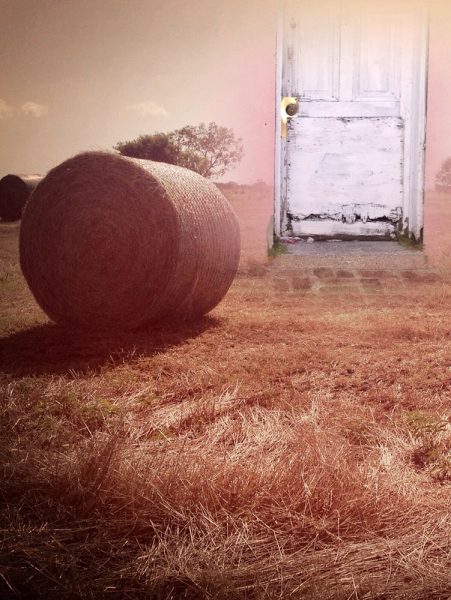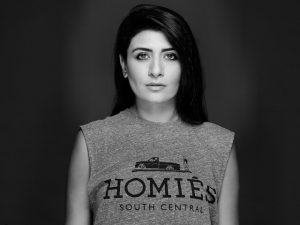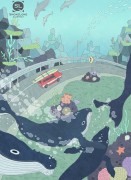First of all, I loved his story. The thing that struck me right off the bat was the breathless nature of the narration. Can you speak to how you made that choice and what effect you were intending in the story with the long sentences?
Thank you!
Part of it was the setting—I wanted it to feel crowded and I wanted the reader to be able to sense all the things not described. I was relying a little bit on the pervasiveness of farmers’ markets and everyone’s familiarity with them, but I wanted the structure to do a lot of that work for me—those long rows of booths, not exactly in straight lines, the unevenness of whatever village green or park or square the market has been assembled on. I wanted to feel that in the narration. I also wanted the forward motion of the story to move at such a pace that you don’t have time to stop and look around; you just have to keep going, keep pushing, and you have to trust that you won’t get lost.
And part of it was the nature of motherhood, how the days sort of become run-on sentences that leave you wrung out. The fear and joy and surprise and responsibility do sort of take your breath away.
I am always interested in how the story begins. Can you talk about where the idea of the story came from, how long it took to finish, and what your process was for condensing so many feelings, so much story, so much tension into this small moment?
I don’t really remember where the idea itself came from. I do a lot of my writing on the train going to and from work. At the time I was feeling uninspired by the stories I’d started and just wanted to produce a whole bunch of new material. I hadn’t really used writing prompts since—well, I don’t know when, but a long while. Someone had given me a copy of Ursula K. Le Guin’s Steering the Craft, so I thought what the hell. I started going through it chapter by chapter and just making myself do the prompts as I came to them and trying not to think about it too much. One of the prompts had me writing a paragraph with no punctuation. So, again, I tried not to think too much about it, just picked a location, started with what I knew—a woman with two boys—and over the next thirty minutes or so I wrote what was to become “The Farmer’s Market.” I of course did some revising after that—I added in some punctuation! And over the next few weeks I made some other very small tweaks—but the story came out almost fully formed. I knew in revising not to fiddle too much with it or it would lose its musicality and so, too, lose its tension and its urgency and its feelings of uncertainty, etc.
The story invokes a sense of being invaded, under attack, both with the conversation of the lost boy as well as all the action that is around the narrator and her kids. I would love to hear about your vision and how you made language choices to create that effect.
I was definitely trying to create a feeling of discomfort, so I used repetition and a staccato approach that hurtled pell-mell at the reader. And then lists of things without commas do sort of seem like an attack they fly forward without the structure to hold them back I picture them like pigs let loose from a pen in that old Curious George book. Using the word “booberries,” which really does sound like how a lot of little kids say “blueberries” but also hints at the reality of the lost boy, and the scar from the C-section suggesting violence, contributed to that menacing feeling.
When no one helps you, that can feel like an attack, right? And no one helps this woman, not her kids, not the police officer, not the lost little boy. She’s out fighting alone.
Did you intend for to be a story about failure? A constant struggle, perhaps? A portrait of motherhood?
Yes, absolutely, it’s all those things. It’s about how little we can know other people. You see a lot of that in portraits of marriages, but not as much about how, as a parent, there is a progression from your child as an infant—when you know absolutely everything your baby experiences and feels—to this gradual not-knowingness the older your kid gets … and that’s really sad to me. The mother in this story is just coming to terms with having to find the balance between protecting her children by holding them close and letting her children find their own way in the world.
Are you a regular farmers’ market-goer? What is the most interesting thing you have picked up at one?
When I lived in the city, yes, absolutely. I loved the sense of community and ritual. Now I live down the street from a farm, so I just go there. I like seeing where my food comes from and supporting small and local businesses. Also, everything tastes better, don’t you think?
I can’t think of one totally interesting thing, but I really love when the scapes are out, the gorgeous swirling mess of them.




 The core workshop of SmokeLong Fitness is all in writing, so you can take part from anywhere at anytime. We are excited about creating a supportive, consistent and structured environment for flash writers to work on their craft in a community. We are thrilled and proud to say that our workshop participants have won, placed, or been listed in every major flash competition. Community works.
The core workshop of SmokeLong Fitness is all in writing, so you can take part from anywhere at anytime. We are excited about creating a supportive, consistent and structured environment for flash writers to work on their craft in a community. We are thrilled and proud to say that our workshop participants have won, placed, or been listed in every major flash competition. Community works.